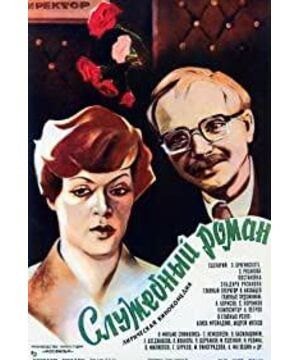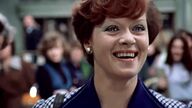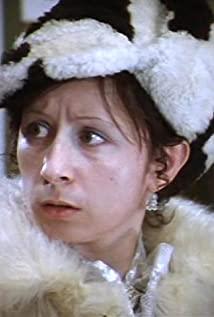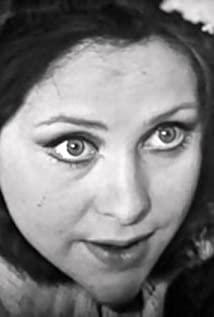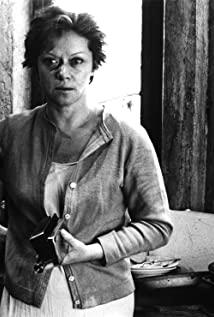This is a Soviet movie that was all the rage in China in the 1980s. It was translated and produced by Bayi Film Studio, released in China, and reserved for broadcast by CCTV. For some people, the film can be seen as a nostalgia for the best days of the Soviet Union.
This is a panorama of the social landscape under the Soviet planned economic system in the 1970s. People go to the restaurant to pay for meals, just like eating a big pot of rice. It is overcrowded, one radish and one pit. There are arrogant clerks and good-natured customers in the store. There are also customers who are so poor that they don't pay for their meals. Like me and other socialist countries, most of the administrative bureaucracies have serious bureaucratic behavior, such as fighting in the house, pulling relationships, bribery and other incidents. There are old-fashioned and serious leaders with rigid behaviors, and subordinates who have a sanctimonious appearance and petty theft in private and get by; When dealing with office romances, the person in charge of the labor union takes a serious attitude of investigating and punishing them, and is righteous and righteous. In terms of dress and fashion, although there is no single category like in my country in the 1970s, women's clothing is generally elegant and decent, not out of line at all. In a secretive and shy relationship, the hero and heroine call each other "you" and use the full name of the name when they are in love.
Ryazanov's films remind me every now and then of our 70s. In China, which is close to reform and opening up, people line up with food stamps to buy food quotas. The most luxurious store is the Friendship International Store opened by foreigners. The most high-end roads are "Shiliyangchang" The Bund and Nanjing East Road. People wear blue clothes and white shirts at work. People with bangs, dance halls, and disco dances will be arrested and reported on style issues. The streets are dirty because people urinate everywhere. People gather in the state-run factories of the planned economy to work in the lowest-level production workshops, and many people even open back doors in order to enter the big factories. In the late 1980s, the disadvantages of "eating a big pot of rice" began to appear. There is no incentive mechanism for people to work during working hours, so they are absent-minded, idle, and lazy. Everyone recites a scripture and secretly does small business after get off work.
I always feel that the tone of Russian literature and art is more or less propped up by veteran realist writers such as Chekov and Gogol. Popular with the general public, less formalism, expressionism, surrealism and other western petty bourgeois literary genres.
The Russian nation is a so-called warlike nation. Perhaps, as Alexievich said, her nation is a miserable nation. In some well-known Soviet-Russian films, the emotions of Russian people's forbearance and restraint can also be seen. Aside from masters such as Eisenstein and Andrei Tarkovsky, we won't discuss it. "Leviathan" is a story that reflects a nail-biting household. It focuses on social reality, criticizes the government for taking power, and attracts the attention of Western film festivals. . "Moscow Does Not Believe in Tears" restores a group of Russian women who are running around for a living, dealing with men, and living in the cracks. It is comparable to "XX Women's Guide", which is in line with modern people's tastes, and allows us to see a clear stream. In addition, Russia has also left behind many prestigious war movies. "The Defense of Moscow" and "The Dawns Here Are Quiet" have all caused phenomenal audience feedback. Perhaps it is because of these war films that "Fighting Nation" is the first impression the Russians give us.
This film more or less inherits the great tradition of realism in Russian art. The stammering love story of a serious and rigid female boss and a lowly, cautious male subordinate made us laugh and cry. Like traditional realist novels, the characters are vividly portrayed and penetrating. The female boss has changed from being old-fashioned, cold-blooded and unsmiling to elegant and sentimental, full of human touch, and her character change is reasonable. The female lead XX interprets this role change vividly and has profound skills. It is also like a stage play, two people can support a play, but it is more intriguing than many 3D special effects 4k today. The female boss is aggressive, half scolding and half angry, the male subordinate stutters, the words are not expressive, the communication between the two is difficult, and it makes people anxious to watch. "all comedy is local". What's more interesting is that it adopts the "open ending" narrative that was rare in that era. The two left the office by beating, scolding and scolding. At the end of the whole play, the director did not say clearly what the prospects of this unfortunate relationship would be. A big question mark for our audience.
View more about Office Romance reviews


